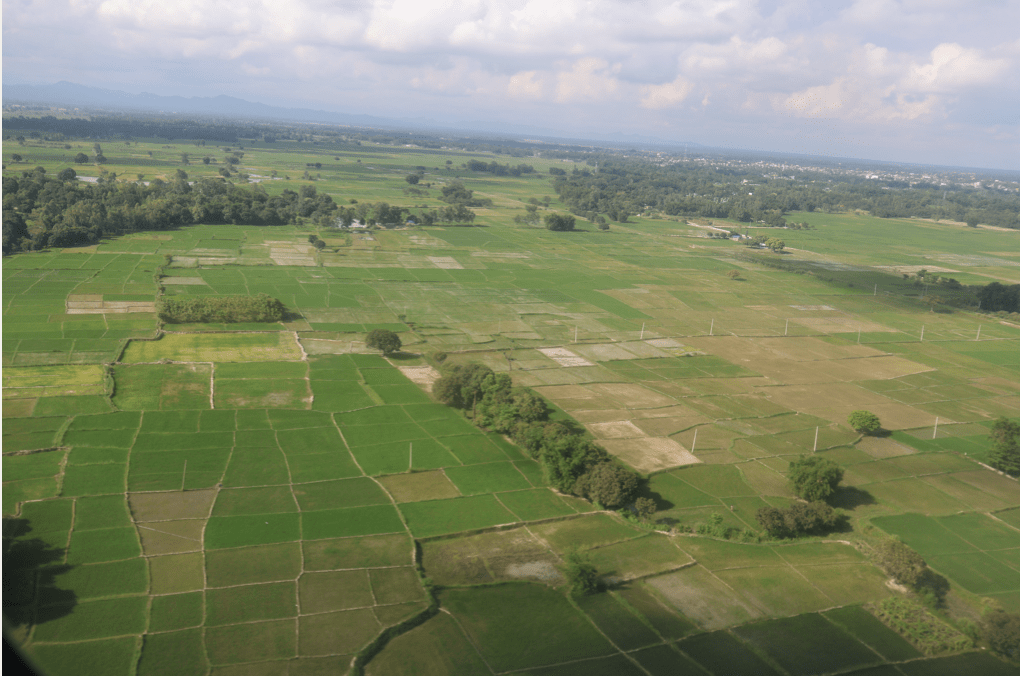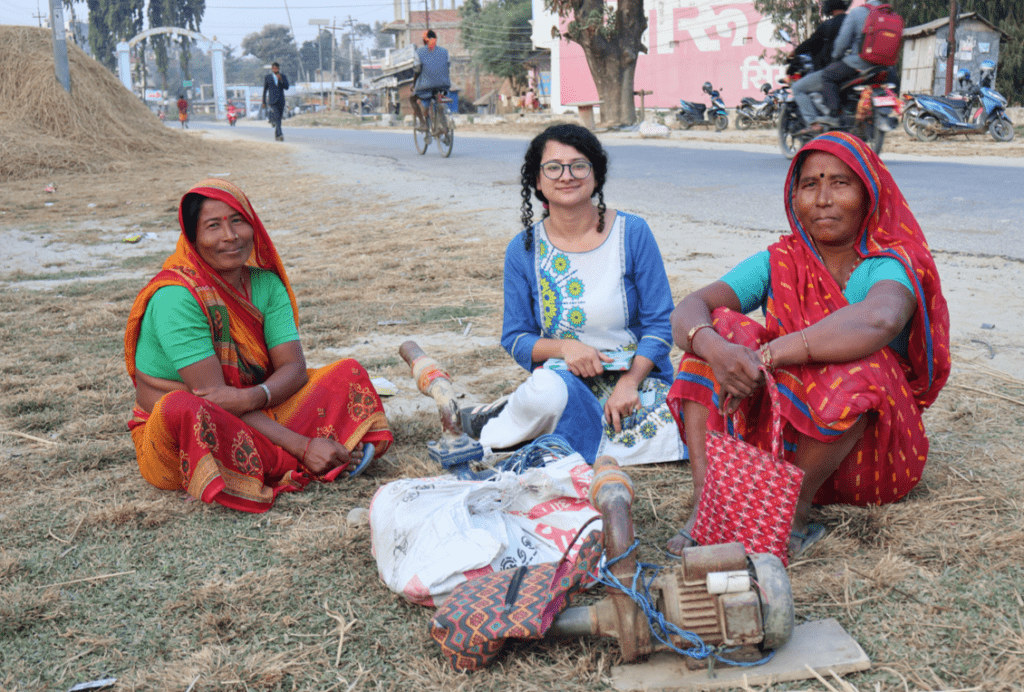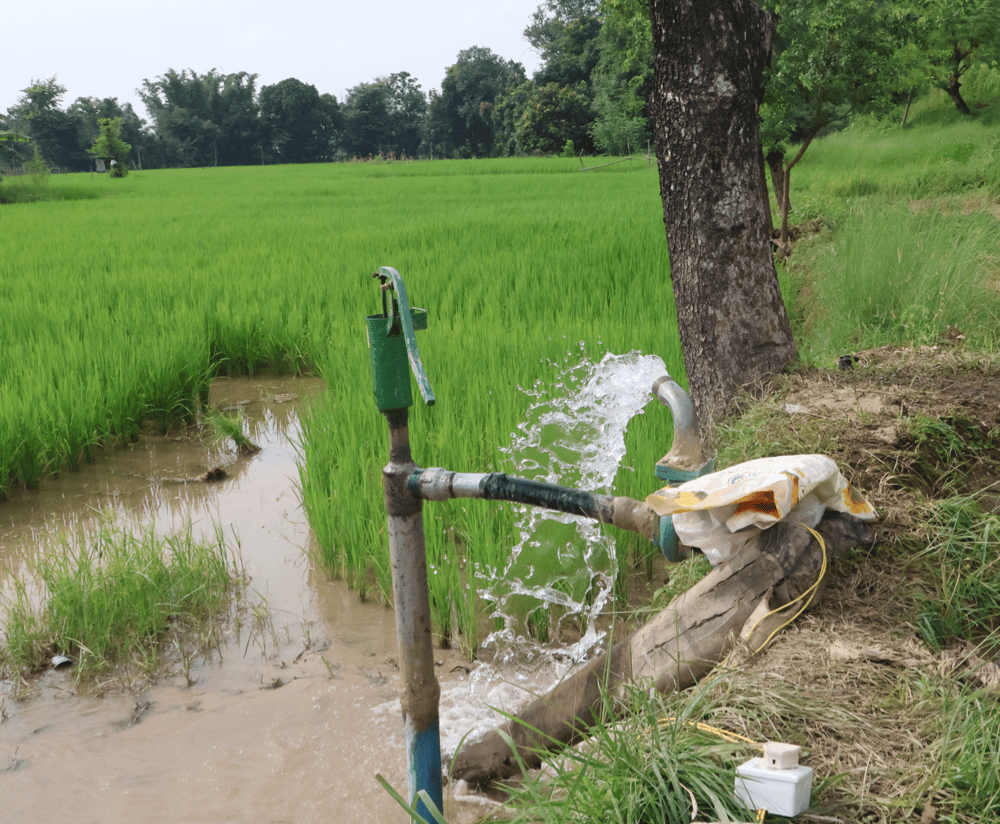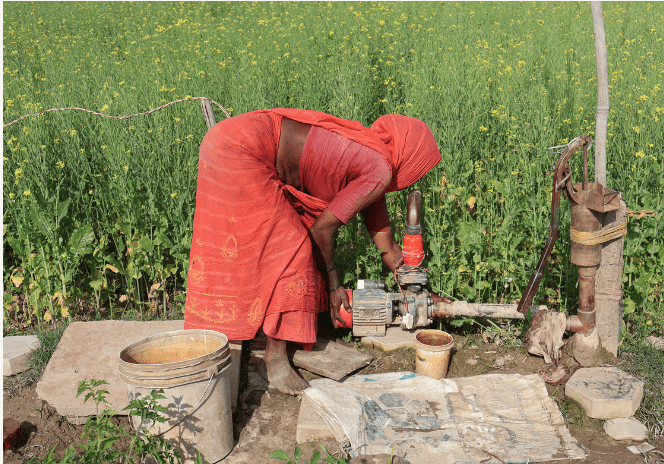

Beyond the pumps: multilayered realities of irrigation for Nepal’s small farmers
June 6, 2024
The Crawford Fund’s highly sought after Student Awards are one way we support and encourage the next generation of Australians into study, careers and volunteering in international agricultural research.
The awards are funded by our State and Territory Committees and made possible by organisations including ACIAR, international centres, Australian and overseas universities and NGOs who host our awardees.
Sixteen talented university students from around Australia were awarded our 2023 Student Awards. As part of this cohort, we would like to share the experience of Manita Raut, a John Allwright Fellow from the Australian National University, who travelled to Nepal as part of her PhD research on “Irrigation Technology Adoption: Water Use and Practices by Marginal and Tenant Farmers in Nepal.”


Left: The lush, green farms belie a harsh truth: while 81.05% of households own land, 46.15% own less than 0.5 hectares and 21.54% own between 0.5 to 1 hectare. Right: Manita (centre) with two farmers returning home after irrigating their fields.
According to Manita, access to water for irrigation is a crucial determinant of agricultural success for the marginal and tenant farmers in Nepal’s Terai region, who make up a substantial part of the farming population. A significant majority, 62.61%, of these farmers manage plots of land smaller than 0.5 hectares. These farmers either own marginal land or rent it from others, and their agricultural livelihoods are heavily dependent on groundwater. However, the adoption and utilisation of irrigation technologies present substantial challenges that go beyond technical aspects, encompassing a range of socio- economic and infrastructural conditions.
“The reliance on groundwater for irrigation is complicated by various factors including land ownership, rental practices, and gender dynamics. Farmers face numerous barriers such as limited land ownership, unfavorable rental agreements, and the complex logistics involved in utilizing irrigation pumps and borewells,” she said.
“Understanding how marginal and tenant farmers access and use irrigation technologies is essential to comprehending the conditions under which they operate, and how these conditions can be improved. This is the premise of my PhD research entitled “Irrigation Technology Adoption: Water Use and Practices by Marginal and Tenant Farmers in Nepal,” said Manita.
“To collect data, I employed qualitative methods including key informant interviews, observations, and formal and informal interviews with farmers, local government leaders, agricultural officials, and water sector professionals located in Saptari and Kathmandu, Nepal. Additionally, I conducted a survey of 401 households in the study wards to understand the characteristics of the communities and the conditions influencing their use of irrigation technologies to access groundwater.”
“Access to groundwater and the adoption of irrigation technology encompass numerous socio-economic and infrastructural issues beyond pump operation. This study identifies critical areas to support irrigation technology adoption among marginal and tenant farmers in Saptari,” she said.


Left: irrigation pumps are vital technology for many farmers; left: a farmer irrigating from her neighbour’s subsidised electric meter symbolises overcoming irrigation barriers through cooperation.
The key takeaways of Manita’s research include:
- Land Ownership and Rental Dynamics
Ownership and rental arrangements are fundamental for water access. Many farmers work on fragmented plots, complicating the use of infrastructure like borewells. Without secure land access and formal tenancy certificates, tenant farmers struggle to benefit from government subsidies and irrigation support programs.
- Associated Infrastructure Needs
Borewell presence in multiple fragmented plots is crucial for effective irrigation. Even if farmers have pumps, the absence of borewells on rented or fragmented land reduces their irrigation capability. Hence, pump usage should be understood in association with necessary infrastructure, such as borewells.
- Gender Dynamics in Irrigation
Women are pivotal in irrigation, managing water distribution and pump operation, especially with rising male out- migration. However, their contributions are often overlooked, and they face additional burdens without support. It is essential to recognize and support women farmers through targeted training to build their irrigation skills and ensure they are not overburdened.
- Environmental Considerations
Monitoring water withdrawal is vital alongside pump operation for effective irrigation. Adoption of irrigation technology must also consider the environmental impact, especially on groundwater resources. Along with considerations for inclusion, integrating sustainable practices, including water-saving technologies and groundwater monitoring, is necessary for irrigation technology adoption strategies.




 0
0